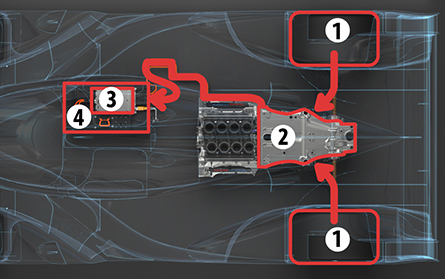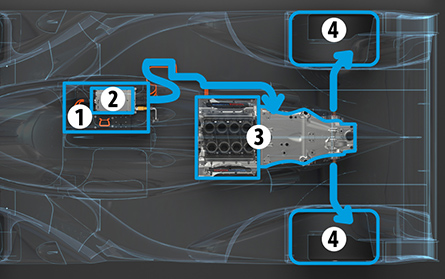
Our ambition is to prove our hybrid technology on the racetrack, helping us develop ever-better road cars for the future, bringing our tried and tested technology to consumers in the shortest possible time.
Yoshiaki Kinoshita, TOYOTA Racing Team President
Taking up the challenge of the Le Mans Race with hybrid power is significant in terms of the feedback of innovative hybrid technology to road cars. Hybrid vehicles are currently in the process of evolving. Massive deceleration energy during braking is very rapidly regenerated and used to power the car. The pursuit of better acceleration in racing makes possible both ecological driving and dynamic, exciting driving for road cars. This is what we believe. Many of our road car engineers have also joined the development team in our Le Mans participation project, and we have given the project everything we have.
All Toyota's hybrid expertise has been marshaled to attain our cherished wish to win at Le Mans. We want to make the exciting HV (Hybrid Vehicle) technology we have created available to all our customers as quickly as possible.

We've been working on achieving impressive acceleration power which will stand the test of endurance racing until the chequered flag.
Hisatake Murata, TOYOTA Racing Hybrid Project Leader
The development of the machine was a continuous process of overcoming challenges and yet more challenges. We worked to downsize and lighten the hybrid system while retaining its full potential. The power train, including the engine, was reduced in weight to 100 kg, one sixth of the original weight. We also completed grueling driving tests extending over 20,000 km. We have attained the ultimate heights of perfection in terms of total harmony of the engine, the motor and the brakes, so that they all work together in concert. We have overcome all the barriers that initially appeared impossible to surmount and we have created a car that will fight for victory at Le Mans. We feel pride in this achievement. This time our eyes are fixed only on the winner place on the podium.
Please give us your support.







































